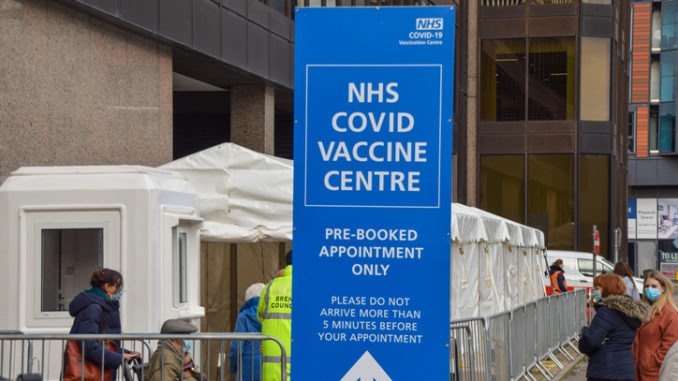
As reported by BBC News, it is vital that people get their “lifesaving” booster jabs to ensure protection through the winter, prime minister Boris Johnson has said
So far more than 10m people in the UK have had a top-up jab, which the PM said was “amazing”. But about 30% of over-80s and 40% of over-50s in England are yet to do so, according to government figures. The health secretary said people should get their booster jabs to avoid restrictions over Christmas.
NHS England is preparing to invite another three million people for their booster jabs next week. Some 409,663 people in the UK received their third vaccine dose on Saturday, official figures show. Booster jabs are available in the UK to anyone aged 50 and over, front-line health and social care workers and over-16s with some health conditions. They can get it six months – 182 days – after their second dose.
Johnson tweeted: “An amazing 10 million people across the UK have already come forward for their booster.
“We know vaccine immunity wanes over time, so boosters are vital in keeping you and your loved ones protected through the winter.”
Earlier, health secretary Sajid Javid called on younger relatives to support their parents, grandparents and loved ones in getting their COVID and flu jabs urgently, calling on people to “play their part” to help get through the winter.
“And if you haven’t yet had your first and second vaccines, it is not too late,” he said. “The NHS will always be there to welcome you with open arms.
“If we all come together and play our part, we can get through this challenging winter, avoid a return to restrictions, and enjoy Christmas.”
Dr Susan Hopkins, chief medical adviser for the UK Health Security Agency (UKHSA), told the BBC’s Andrew Marr Show that “the virus is circulating at very high levels in our community, so unless people get vaccinated, we will have a long and difficult winter”.
“We’re still seeing deaths in mainly the unvaccinated population… but increasingly, because of immune waning effects, there are deaths in the vaccinated group as well,” she said.
“It is particularly the older age groups, so the over 70s in particular, but also those who are clinically vulnerable, extremely vulnerable, and have underlying medical conditions. That’s why those people need to come forward for their third dose as soon as possible.”
And the chief executive of NHS Providers, Chris Hopson, told Times Radio that bed occupancy levels in NHS hospitals were at “94, 95, 96%”.
He added the current hospital admission levels indicated that “we’re into peak winter. We’ve not seen that before. That’s unprecedented”. Mr Hopson said the current situation was “very worrying” and “the NHS is going to be under real pressure”.
From Monday, people living in England could book their appointment for a booster jab a month in advance as part of efforts to accelerate the rollout. Some 30m people across the UK will eventually be eligible for a top-up jab. NHS England said eight million people had received theirs so far, out of the 12m who have been invited.
Meanwhile, reported cases of the virus continue to fall, with another 30,305 cases recorded on Sunday. A further 62 people died within 28 days of a positive test. These figures tend to be lower on Sundays due to reduced reporting. While two vaccine doses give people high levels of protection, immunity reduces over time, particularly for at-risk groups.
The government’s Scientific Advisory Group for Emergencies (Sage) estimates the protection against needing hospital treatment for a COVID infection falls:
- from 95% three months after a second dose of AstraZeneca to 75% after six months
- from 99% three months after a second dose of Pfizer to 90% after six months.
The protection against symptomatic disease falls from 65% to 45% over the same time period with two jabs of the AstraZeneca vaccine, and from 90% to 65% for two jabs of Pfizer. Experts say even small dips in immunity among at-risk people will affect the NHS’s ability to cope this winter, as it will likely lead to significantly more people needing hospital treatment.


Be the first to comment